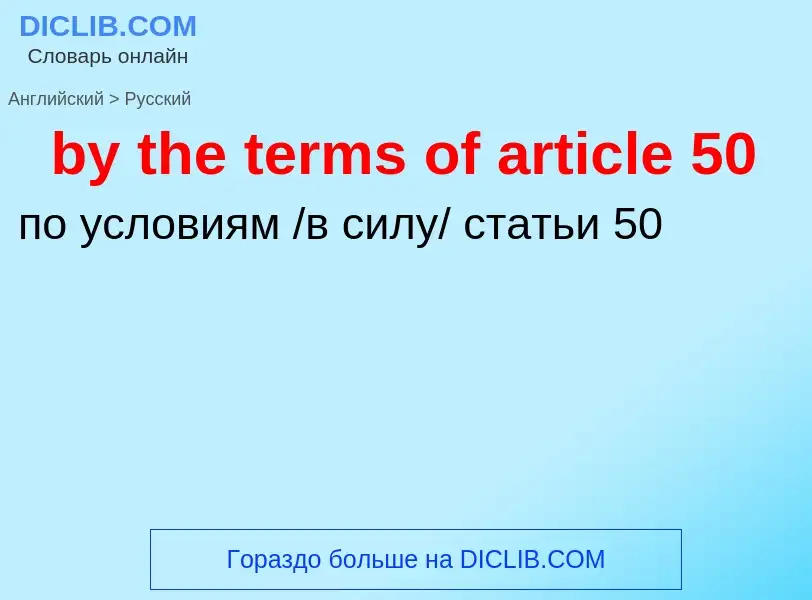Перевод и анализ слов искусственным интеллектом ChatGPT
На этой странице Вы можете получить подробный анализ слова или словосочетания, произведенный с помощью лучшей на сегодняшний день технологии искусственного интеллекта:
- как употребляется слово
- частота употребления
- используется оно чаще в устной или письменной речи
- варианты перевода слова
- примеры употребления (несколько фраз с переводом)
- этимология
by the terms of article 50 - перевод на Английский
['nju:zstɔ:ri]
общая лексика
(пространное) газетное сообщение (без комментариев)
Определение
Википедия
Withdrawal from the European Union is the legal and political process whereby an EU member state ceases to be a member of the Union. Article 50 of the Treaty on European Union (TEU) states that "Any Member State may decide to withdraw from the Union in accordance with its own constitutional requirements".
Currently, the United Kingdom is the only former member state to have withdrawn from the European Union. The process to do so began when the UK Government triggered Article 50 to begin the UK's withdrawal from the EU on 29 March 2017 following a June 2016 referendum, and the withdrawal was scheduled in law to occur on 29 March 2019. Subsequently, the UK sought, and was granted, a number of Article 50 extensions until 31 January 2020. On 23 January 2020, the withdrawal agreement was ratified by the Parliament of the United Kingdom, and on 29 January 2020 by the European Parliament. The UK left the EU on 31 January 2020 at 23:00 GMT ending 47 years of membership.
Four territories of EU member states have withdrawn: French Algeria (in 1962, upon independence), Greenland (in 1985, following a referendum), Saint Pierre and Miquelon (also in 1985, unilaterally) and Saint Barthélemy (in 2012), the latter three becoming Overseas Countries and Territories of the European Union.


